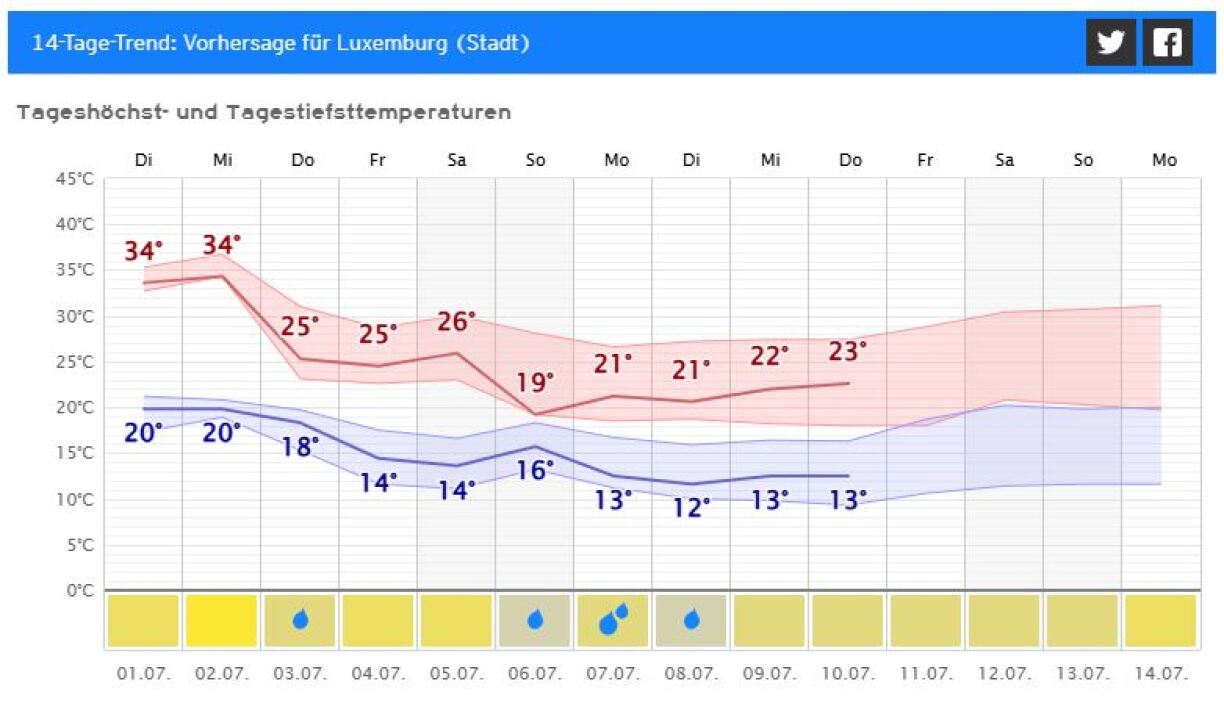The soaring temperatures of late call for fully-seated terraces and darkened rooms at home. Everyone is trying to protect themselves from the heat as much as possible.
German meteorologist Jörg Kachelmann responded to our questions and gave a clear warning to contemplate as well.
For Kachelmann, the current heatwave cannot be called an extraordinary phenomenon especially in comparison to previous years.
“We have already experienced significantly hotter episodes”, he stated. Record temperatures have not been reached as of yet.
“These hot phases have become a normality in summer during climate change. What we experience every two years now will become a yearly reality in the future”, the climate expert foreshadowed.
What some people still see as extreme is gradually becoming the new normal.
Asked about meteorological causes, Kachelmann further explained that Luxembourg is feeling air masses coming up from Spain and Portugal.
“However, we do not experience them fully, otherwise we would be seeing 40 degrees in the shade”, he added.
These air masses push temperatures up, but the heat has already weakened by the time it arrives in Luxembourg.

The future seems crystal clear to the meteorologist: we will have heatwaves more frequently and earlier in the year.
Kachelmann underlines that prevention is essential and he picks up on the role of politics in promoting responsible measures.
“It is important for responsible states to produce as much solar power as possible”, he reasons.
Heat pumps, he notes, can not only heat in winter but also cool in summer, and do so in a climate-neutral way.